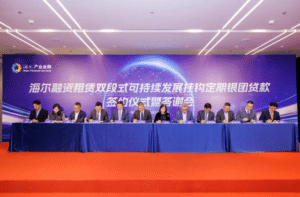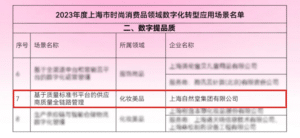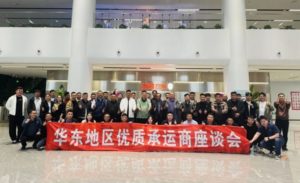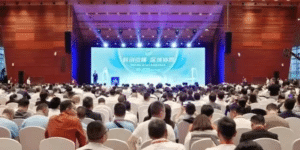Volvo Chinpeji: If you want to go further, you must first have stronger digital tools
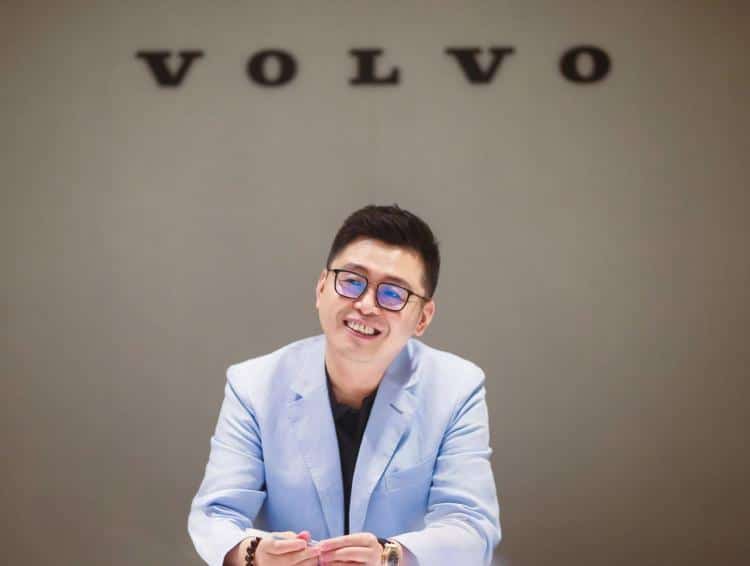
[ad_1]
At the Chengdu Auto Show in 2022, Mr. Qin Peiji, President of Volvo Cars Greater China Sales Company, conducted an interview. The following is the content of the interview.
New travel: Volvo is the first to start direct sales among luxury car brands. What is the current operating status?
Chinpeji: When you go to the supermarket to buy water, some brands will appear in your mind, because they will be subtly infected in your life. The brand promotion effect of the directly-operated store is relatively strong, and the ability to obtain clues is very strong, so our city center store not only has pure electric vehicles, but also plug-in hybrids and fuel vehicles, not just for pure electric vehicles.
We first opened 5 stores in Shanghai, and now the 6th store has started renovation. These 5 companies are relatively mature, and the effect is obvious, in line with the expectations of the year, and even 3 companies exceeded expectations, with 20 to 30 orders for trams a month, and there are also a large number of orders for plug-in hybrid models and clues for fuel vehicles. Judging from the operation of these stores, it has completely exceeded expectations, and the dealers’ input and output effects are also very good.
We have established city center stores in Guangzhou, Beijing, Shenzhen, Chengdu and Hangzhou, 5 in Shenzhen, 2 in Hangzhou, 1 in Guangzhou and 1 in Chengdu. Shanghai “proofing” is very successful, we can replicate this model. Of course, if the store is not managed, the follow-up will be out of shape. Therefore, we will output a set of management and control of personnel management, training and counseling, including our own “hands-on” proofing as a consultant, and then its independent operation.
New travel: What is the difference between Volvo’s city center store and the “Wei Xiaoli” directly-operated store?
Chinpeji: Essentially no difference. Directly-operated stores are when customers go shopping, there is a store that can explain products and brands to them. The store will not be in a hurry to make a deal, because the ultimate goal is a test drive. If the deal is made, the delivery will be completed in the delivery center, and we are the same.
This logic is the same when buying a fuel car. It can be understood that this is a long-term trade show. Customers have already come into contact with this brand when they don’t want to buy a car. With this brand, you will be successful. This is the same as growing grass online. When you read Xiaohongshu, you don’t want to buy a car, but after reading it repeatedly, if you want to buy a car a year later, relevant brands will emerge subconsciously. In addition, direct-sale stores have a strong ability to attract leads, and customers can quickly convert to car purchases. One is because of their strong spending power, and the other is that customers will speed up their purchases during the process of looking at cars.
New travel: From the perspective of digital operation, what is the assessment KPI of directly-operated stores?
Qin Peiji: Traditional 4S stores mainly assess store entry and investment retention, follow-up test drives and transaction volume. But supermarkets are different, and even a test drive is difficult to achieve. For example, if you are shopping, it will not work for you to spend half an hour on a test drive. Therefore, our KPI focuses on entering the store, retaining capital and subsequent test drives, and the overall indicators will be less than those of traditional 4S stores.
New Mobility: When changing the sales model, how do we do digitalization well? For example, many traditional luxury brands want to be more direct and offline, but don’t they also respect the operating model of traditional dealers?
Chin Peiji: If you want to go further, first of all, the digital tools should be stronger. Usually the problem is the lack of back-end digital tools. For example, if a customer needs service, a traditional app will push a picture or a video, let you check it, and then it’s over. If you do well, there may be an online customer service.
But the enterprise WeChat we want to do is full access, point-to-point, and the back-end is directly connected with customer service. For example, the direct sales team now has a corporate WeChat connection, and the entire process of customers buying Volvo trams can be completed online. This is a large engineering system, and many people need to be connected at the back end. The difficulty of digital tools like this lies in the management of background personnel. The larger the system, the harder it is to transform. Although the establishment of a direct team is the best, it costs a lot, and the requirements for management capabilities will increase a lot, and it will cause many problems when the scale is large. The dealer model can help you make more contacts, but there are also difficulties. Each group has its own ideas, and it is difficult to standardize dealer actions.
New travel: How fast is Volvo’s new energy products advancing? The two-year launch of pure electric products seems a bit slow? How do you feel about this?
Chin Peiji: I feel slow because you use new forces as a frame of reference. Countless products are released every day, but objectively speaking, foreign-funded companies and local new forces have their own characteristics.
The new forces always believe that speed is the only way to break through, but foreign-funded enterprises always insist on their own system framework. The same is often true of business management. For example, we need to go through a long process to apply for an urban supermarket store. When purchasing, we need to confirm whether your price is too high and whether you have compliance issues, and we need to approve it from the headquarters. The whole process may take 3 ~4 weeks, but in 3~4 weeks this store may have been taken away by other brands. But if you blindly pursue speed without process control, there will also be many problems, such as false price reporting. So this is always a question of how to balance, that is, which one do you pursue, efficiency or systematization? Volvo, on the other hand, pursues high efficiency as much as possible in the case of process compliance. The process of traditional enterprises is too slow. I can tolerate it for a week, and it must be reviewed in a week. As for whether to open such a problem, there is no need to review it. , this is up to us to decide. As for whether the price is reasonable, can we establish a framework for procurement, and set a range for each urban area. Within the range, there is no need for additional approval, and we must pursue an efficiency.
The same is true from the perspective of vehicle models. Foreign-funded enterprises insist that the vehicles themselves have to pass a large number of tests, and they are unwilling to mass-produce them if they are not mature, including us. Many things have a little flaw, and they are unwilling to go offline. They must follow the process. This is true. It makes sense, because the car itself has changed its driving mode and used more software, but people still sit in the car, and they still have to run to 120 on the high speed. So these tests are still required, even more complicated. Our “world tree” central integrated system eventually becomes a “big CPU” instead of individual control units, which is prone to cause various conflicts.
Therefore, it is true that what is pursued in China is fast, and this is the national condition. But some companies can sell well in Europe, or sell well in the United States. What they pursue is the system. They think that I still believe in a trustworthy system to ensure the development of the company, so it is not a matter of who is right or who is wrong. I think what we have to take a step forward is the software system. The software needs to be faster, because it doesn’t need to do so much to update it. Although it also needs to be tested, it doesn’t need to be so complicated. Now, your remote push has to be fast, otherwise users will think that others are fast, because they are also brainwashed.
Many times I joked that I don’t need to be fast. I am most annoyed when I see Apple upgrades. I can’t use my phone anymore. I have to wait for it to upgrade at night, and I feel anxious when I see the red dot; I also joked with them Said, in the previous microwave oven at home, I was anxious when I saw a row of buttons. I just wanted to turn it. Don’t let me see this row. There is also a washing machine, I only know that there is a mixed washing, I will only press it, because I don’t know what the other dozen are for, press the mixed washing button, and then it will jump by itself when the time comes, how convenient. But some people like this. Our company has many male geeks with science and engineering backgrounds. He has to think about this function repeatedly, and he can’t wait to dismantle the microwave oven. So I think that many consumers have different personalities. It is difficult for foreign-funded enterprises to speed up in terms of hardware, and they cannot pass any tests that must be done. Our R&D is very persistent.
For new forces, I think they will gradually pursue reliability. You must be fast now, because if you want to occupy the ground, it seems that whoever does not produce a car model will not be able to IPO. I understand that this is a time of life and death. But it’s been a long time. Weilai was talking about system power some time ago, and I was shocked when I saw it. Isn’t this what we have been talking about? Shouldn’t they talk about fastness and not failure.
So, I think the world will be unified in the end. Of course, new consumers must like high technology, but the problem is that after middle-level consumers come in, they will also start to pursue these things, so I think this is what we want to change.
It can’t be said that because cutting-edge consumers let go of the past, mainstream consumers come in, I think they will return to the concept of gasoline vehicles, no, they will also pursue intelligence, autonomous driving, and battery life The mileage is getting longer and longer, and these characteristics must be grasped.
But it may be debatable whether to sing in the car, we may never enable this function, because I think our consumers may not have this scene. There are some functions that give full play to their own product characteristics, and those who pursue coolness will go in that direction. For example, in the oil truck era, when I first joined Volvo, I told our research and development, look at the colorful ambient lights of Mercedes-Benz, why have you never had them? Look at how pretty the gaudy colors are. The R&D person said, if I make everything according to him, it will be a Mercedes-Benz, so what else does he need Volvo for?
So I thought about it for a long time, and I think it makes sense for him, because the tonality of Volvo Nordic is already a style. You can’t say that because Mercedes-Benz is easy to sell in the market, I will make all the colorful atmosphere lights. Volvo’s engineers said that too many lights will reflect, and diffuse reflection will disturb the driver’s eyes. This is what they are researching, and it is another system. The brand still needs to have its own tone.
New travel: when some brands are undergoing electrification transformation, the tonality and labels are changing. In the new era of pure electric vehicles, what will the Volvo label be?
Chin Peiji: The tone of our brand will not change, it is still safe, healthy and sustainable. Sustainability is very important in the tram era, and we always adhere to safety and health. For example, in today’s concept car, the interior is made of new environmentally friendly technology materials developed by Volvo. It is made of pine resin, red wine corks and PET materials from Sweden and Finland. These are not low-end materials that you may think. These materials cost much more than genuine leather. Although the cost is higher, the texture is better and it is more friendly to the environment, because the production process of leather will produce a lot of environmental pollution. In addition, how to ensure the safety of pure electric vehicles has become a big problem. Therefore, in the era of trams, Volvo insists on safety, health, and sustainability, and there is no need to change them. From the era of fuel vehicles to the era of trams, these concepts will be accepted by more consumers.
New Mobility: Speaking of safety, we also have a Polestar, how is this relationship handled?
Chin Peiji: We operate under different brands. In order to maintain the corresponding brand tonality, everyone separates them. Polestar is a brand-new brand without historical burden, which can be more radical or avant-garde.
New Mobility: In terms of future autonomous driving, what will Volvo implement in China, and what will be its pace and characteristics?
Chin Peiji: We are taking a comprehensive technology path, including lidar with the longest detection range in the world, the “panoramic smart cockpit” of the next-generation model, and so on. So unlike Tesla, which only takes one path, we take a comprehensive path. In the next generation of models, we will soon bring the industry’s most advanced “world tree” central computing architecture. Volvo is also one of the earliest car companies to develop autonomous driving. In 2012, it launched the first autonomous driving concept car in history. In 2015, its mass-produced products were equipped with the world’s first mass-produced L2 level intelligent driving system.
New travel: I heard that in 2025, there will be a technology that Volvo is responsible for launching in Northern Europe?
Chin Peiji: It also depends on the laws and regulations. Our unsupervised, highly automated driving feature, Ride Pilot, will hit the roads in California first and roll out globally as regulations allow. At present, it has not been tested in China, but we have technical reserves, and the launch time is nothing more than a question of when it will be released. In addition to autonomous driving, tram safety is also worthy of attention, as well as smart cockpits. We have advanced technology reserves in these three areas.
New Travel: Will you cooperate with domestic suppliers?
Chin Peiji: We have invested in many autonomous driving suppliers. For example, Luminar, the top international supplier of lidar, is invested by Volvo.
New travel: Will Volvo invest in related software or autonomous driving partners in China? In terms of software speed, does Volvo have any optimization models, such as whether the software can be merged at home and abroad?
Chin Peiji: Not currently, we continue to pay attention to the development of the industry. Regarding autonomous driving, we have Zenseact ourselves, and we also have a team in China, which is jointly developed with the headquarters team.
New travel: Is Volvo and Yikatong a joint venture, or what?
Chin Peiji: Recently there has been a change, a share has been sold to Yikatong. The technology is still developed by that company, and Yikatong can help us carry out some localized car machine transformations.
New travel: Volvo sales are not so affected by the epidemic this year?
Chin Peiji: On the one hand, luxury brands are more resistant to attack. Because self-owned brands and electric vehicles are moving from downstream to upstream, self-owned brands have already entered the range of 100,000 to 200,000 yuan, and joint ventures face relatively large challenges. After all, the luxury car field is in the range of 300,000 to 500,000 yuan, and the market will not be occupied so quickly. .
On the other hand, it also benefits from the stable maintenance of our entire system. For example, the dealer system can stabilize at a certain level of income, including the home subsidies we provide for sales staff during the epidemic, and high-temperature subsidies for front-line personnel of dealers in Chengdu and Chongqing. The most important thing is that the 3,000 sales consultants across the country will not be lost and the team will be stable. On the brand side, we are also doing well. The number of stores entering the store increased sharply in July and August, but the overall industry situation is not so good. This is because the brand continues to make efforts, and consumers slowly accept us. So the stability of the whole system is the most important.
New travel: We talked about the operation mode of Volvo’s supermarkets at the auto show last year. Half a year later, what is the overall effect and the pace of future advancement?
Chin Peiji: So far, the effect is good. Several stores in Shanghai are the most mature. Although the epidemic has been delayed for several months, after the resumption of operations, the sales volume, profit and loss level, and operation are all very good. Moreover, our supermarket stores cover trams, plug-in hybrids and gasoline. car. Therefore, this model is currently successful no matter from the perspective of vehicle models, clue collection, brand influence, and dealer profitability.
It is nothing more than we subsidize the rent, but from the perspective of brand building, it is still worth investing. This is also our advantage – low cost, lower cost than Weilai and Xiaopeng supermarket stores. Throughout this year, we plan to add 25 city center stores and 1 directly-operated store. Next year, pure electric products will be launched on a large scale, so the plan is 60-70 stores. Of course, we hope to have more, and it is best to reach 100 stores. .
New Travel: How many trams will there be next year?
Chin Peggy: In the next 18 months, Volvo Cars will unveil 4 new pure electric products.
New travel: In order to accelerate the comprehensive electrification transformation, in addition to supermarkets, what service details and internal work are there?
Chin Peiji: In terms of digital transformation, we need to invest a lot of manpower and material resources to rebuild the digital platform. The Volvo Cars APP has been launched, providing users with more than 50 functions such as car use, car maintenance, and charging. If there is a customer complaint, the backstage and after-sales must respond quickly. We are conducting targeted drills, such as how long to reply within a specified time when we receive a call. However, the massive amount of consultation on the online platform will bring many problems, and these digital transformations will bring about problems about consumers, which is a bigger transformation process. Therefore, we are making the CRM team bigger and treating them as consumer spokespersons within the company. They will report front-end problems and follow up after-sales in a timely manner.
In the era of electrification, brand building is also difficult. The Volvo brand is a traditional company with nearly a hundred years of brand history. You may think that the attributes of trams are not strong. When consumers buy trams, new forces are first on the list, rather than traditional car companies that “build fuel vehicles” in their impression. But we will not separate from fuel vehicles. Every time we announce the electrification brand, we are also saying that 50% is electrification and 50% is still gasoline vehicles. How to carry out brand transition? It may be a plan to talk more about brands and products, but at the tactical level, everyone adopts different methods.
Now when people watch Douyin, they can decide whether to look back in the first three seconds. There have been great changes in the way of communication, faster and more direct, but the core must still be safe, healthy, and sustainable, which resonate. There are great challenges in branding, channel construction, and digitalization. Even the dealer cooperation model has only been around for a year and a half, but we still have internal debates about who should be the main player. We are still trying.
Integration is not a big problem, because our dealer system has been practiced for many years, and we are very strict with him, that is, standardization. I have always said that standardization is the prelude to direct sales. It is necessary to strengthen the management of dealers and strengthen standardization. Even if dealers can only achieve 70% or 80% of the performance, consumers’ perceptions will be okay.
[ad_2]
Source link


